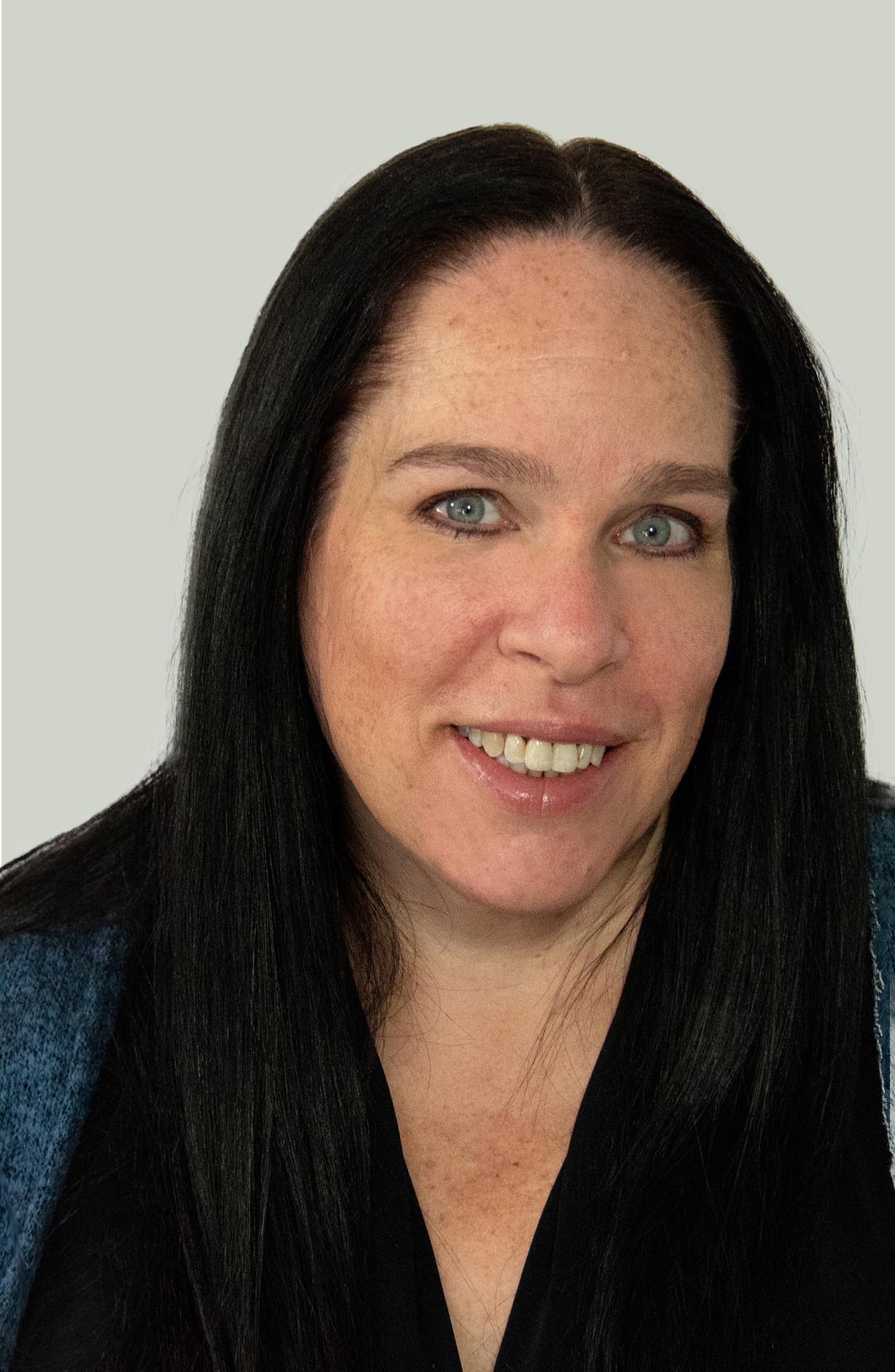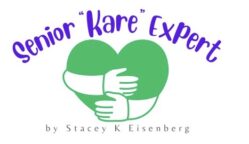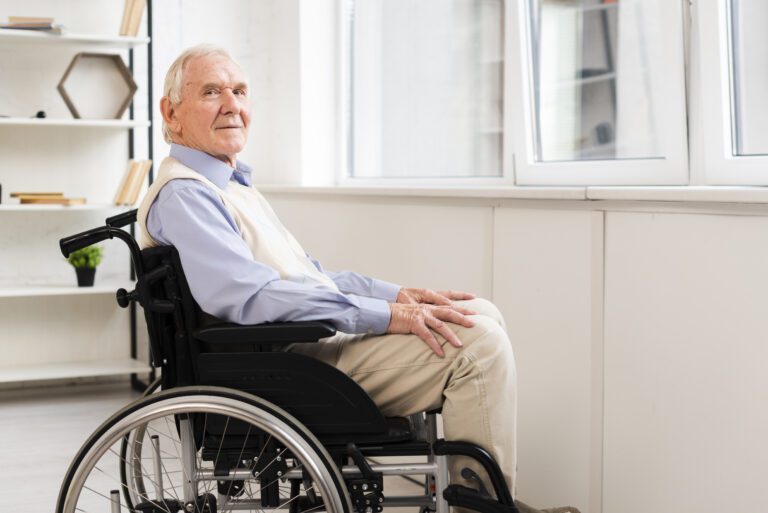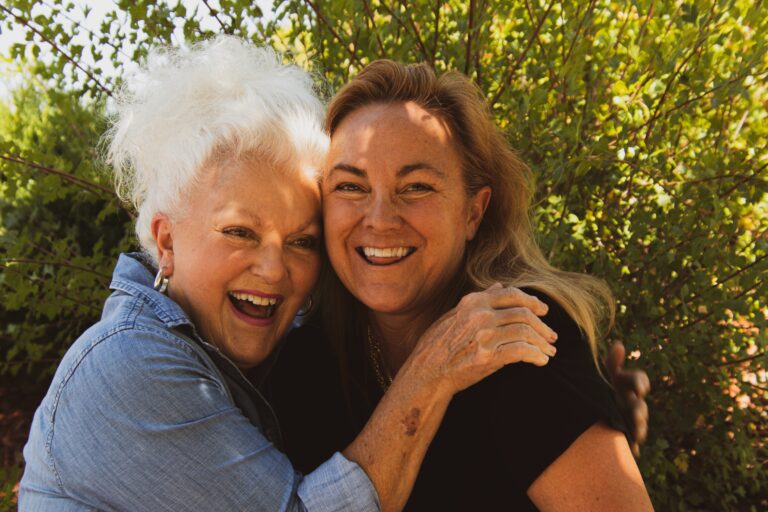Navigating hospital discharge is a critical phase in a senior’s healthcare journey, especially following significant medical events like cardiac issues or surgery. It’s a process that requires meticulous planning and coordination to ensure a seamless transition to the next stage of care. Let’s explore what families need to know to make this transition as smooth and effective as possible.
Post-Discharge Needs: What Families Need to Consider
Timing of Planning:
Planning for post-discharge care should ideally begin as soon as a discharge date is projected. Often, this can be several days to a week before the actual discharge, and sometimes same or next day, depending on the senior’s condition and recovery progress. Early planning allows time to coordinate services, procure necessary equipment, and prepare the home environment.
Assessing Care Needs:
- Medical Assessment: Collaborate with the healthcare team to assess the level of care the senior will require post-discharge. This includes understanding their mobility status, wound care needs, medication regimen, and any special medical care like dialysis or oxygen therapy.
- Daily Living Needs: Evaluate the senior’s ability to perform daily activities such as bathing, dressing, eating, and moving around. This assessment will determine the level of assistance required.
Home Care Planning:
- Home Health Services: If skilled medical care is needed, such as wound care or physical therapy, discuss options with a home health agency. Home health professionals can provide specialized medical care in the comfort of the senior’s home.
- Home Care Services: For assistance with daily living activities, consider home care services. These professionals can help with bathing, dressing, meal preparation, and light housekeeping.
- Caregiver Support: If family members are taking on caregiving roles, they should be prepared for the tasks and time commitment involved. Consider scheduling and training sessions for family caregivers.
Equipment Needs:
- Medical Equipment: Based on the senior’s condition, various medical equipment may be required, such as a hospital bed, wheelchair, walker, or oxygen tanks. Coordinate with the hospital staff and medical equipment suppliers.
- Safety Modifications: Make necessary modifications in the home for safety and accessibility. This might include installing grab bars in the bathroom, setting up a bed on the ground floor, or securing or removing loose rugs.
Challenges Without a Caregiver:
- Health Risk: Without a caregiver, seniors face increased risks of falls, medication errors, and unattended medical issues.
- Emotional Well-being: Seniors recovering alone may experience loneliness and anxiety, which can affect their overall well-being and recovery.
- Daily Living: Simple daily activities can become challenging, leading to issues with personal hygiene, nutrition, and medication adherence.
Communicating with Service Providers
- Start Early: Initiate conversations with potential service providers well before the discharge date. This includes home health agencies, equipment suppliers, and caregiving services.
- Service Coordination: Ensure that all service providers have the necessary information about the senior’s condition, care needs, and preferences.
- Insurance and Costs: Discuss the coverage of services with insurance providers to understand what is covered and what costs will be out-of-pocket.
Effective planning for post-discharge needs is essential for a smooth and safe transition to home care. By assessing the care requirements, arranging for appropriate services and equipment, and understanding the challenges of returning home without adequate support, families can ensure a conducive environment for the senior’s recovery and well-being.
Enhancing Discharge Planning: Involving Home Health and Care Agencies
The Importance of Inclusive Communication:
When planning for a senior’s discharge from the hospital, inclusive communication between all parties involved – healthcare professionals, home health agencies, home care services, and family members – is vital. This collaborative approach ensures everyone is aligned on the senior’s needs and the care plan, which is crucial for preventing readmissions and ensuring a smooth transition to home care.
Why Include Home Health/Care Agencies in Meetings:
Comprehensive Understanding of Care Needs:
- Home health and care agencies can gain firsthand insight into the senior’s medical condition, recovery progress, and specific needs directly from the hospital’s medical team.
- They can ask pertinent questions and clarify any uncertainties regarding care procedures, medication management, and therapy needs.
Customized Care Planning:
- With direct communication, these agencies can tailor their services more effectively to fit the specific requirements of the senior, ensuring a seamless continuation of care from hospital to home.
- They can prepare their staff with the necessary skills and resources to meet the unique needs of the senior.
Coordination of Services:
- Including these agencies in the discussion helps in coordinating various services such as physical therapy, nursing care, and assistance with daily living activities.
- This coordination is crucial in creating a consistent care routine, reducing the risk of miscommunication or gaps in care.
Preventing Readmissions:
- Clear communication and coordination among all parties can significantly reduce the risk of complications and readmissions.
- Home health/care providers can be made aware of potential warning signs and instructed on when to seek further medical assistance.
- At our in-home care agency, we use a hospital readmission risk assessment to help our caregivers stay on track of the recovery plan. You might also want to consider having a caregiver for 24, 48 or 72 hours, that can fast track the road to recovery.
Educating Family Members:
- These meetings provide an opportunity for family members to learn about the care process, understand their role, and set realistic expectations.
- It also allows them to establish a relationship with the home health/care providers, fostering a team approach to the senior’s care.
How to Facilitate This Involvement:
Early Coordination:
- As soon as a discharge plan starts to take shape, initiate contact with the chosen home health/care agency.
- Inform the hospital’s discharge planning team about the involvement of the external care providers.
Scheduling Joint Meetings:
- Arrange for a meeting or conference call involving healthcare professionals, home health/care agency representatives, and family members.
- Ensure that these meetings take place well before the discharge date to allow for adequate preparation.
Creating a Unified Care Plan:
- During the meeting, collaborate to develop a unified care plan that addresses all aspects of the senior’s post-discharge care.
- Document this plan clearly and distribute it among all parties involved.
Regular Follow-Ups:
- After discharge, schedule regular follow-up meetings or calls to discuss the senior’s progress and make any necessary adjustments to the care plan.
Involving home health and/or home care agencies in the discharge planning meetings with healthcare professionals is a strategic move that can greatly enhance the quality and continuity of care for seniors post-discharge. It helps in creating a comprehensive, well-coordinated care plan that addresses the senior’s needs holistically, reducing the likelihood of readmissions and ensuring a smoother recovery at home.
Ensuring a Safe Return: The Role of Home Safety Evaluations
A comprehensive home safety evaluation is paramount for seniors returning home after a hospital stay. This process involves assessing and modifying the living environment to ensure it’s safe, accessible, and conducive to recovery. Leveraging the expertise of home care agencies and using tools like the ElderSafe app can significantly enhance this process.
Collaborating with Home Care Agencies:
Expertise in Safety Assessment:
- Home care agencies often have professionals trained in identifying potential hazards in a senior’s home and recommending necessary changes.
- They can provide a thorough assessment, focusing on areas like the bathroom, bedroom, kitchen, and living spaces.
Personalized Recommendations:
- Based on the senior’s specific mobility and health needs, home care providers can suggest tailored modifications. For instance, if mobility is limited, they might recommend installing ramps or stairlifts.
Implementation Support:
- Some agencies may assist in implementing these modifications, whether by coordinating with contractors or providing temporary solutions like portable grab bars.
Utilizing Technology: Apps like ElderSafe App:
Comprehensive Evaluation Tool:
- ElderSafe on Android is an app designed to facilitate home safety evaluations. It offers checklists and guidelines to identify potential hazards in different areas of the home.
User-Friendly Interface:
- The app is designed with user-friendliness in mind, making it accessible even for those who are not tech-savvy. Family members or caregivers can easily navigate through its features.
Customized Suggestions:
- Based on the input provided about the home environment, ElderSafe can offer customized recommendations to improve safety. This feature is particularly useful in tailoring the home to the senior’s unique needs.
Resources and Information:
- The app provides valuable resources and information on home safety, offering insights into why certain modifications are necessary and how they can prevent accidents.
Key Areas of Focus in Home Safety Evaluations:
Flooring:
- Check for loose carpets, slippery tiles, or uneven flooring. Non-slip mats and securely fixed rugs are essential.
Bathroom Safety:
- Install grab bars in the shower and near the toilet. Consider a shower chair or bench and non-slip bath mats.
Lighting:
- Ensure adequate lighting in all areas, especially hallways and staircases. Nightlights in bedrooms and bathrooms can prevent falls during the night.
Accessibility:
- Rearrange furniture to create clear pathways. If necessary, consider adaptive equipment like bed rails or riser recliners.
Emergency Preparedness:
- Set up emergency response systems or ensure easy access to phones or emergency call devices.
A thorough home safety evaluation, facilitated by the expertise of home care agencies and enhanced with tools like the ElderSafe app, is crucial in preparing a senior’s home for post-hospital care. These steps not only ensure a safer environment but also provide peace of mind for both the seniors and their families, knowing that the risk of accidents and injuries is significantly minimized.
Securing the Right Care: Choosing Professional Home Care Assistance
Post-hospitalization, seniors often require additional care and support. While family and friends are invaluable, there are compelling reasons to consider professional home care agencies. Additionally, understanding the advantages of home care over nursing facilities is crucial for making an informed decision.
Professional Home Care Agencies vs. Family and Friends:
Expertise and Training:
- Home care professionals are trained to handle various health and mobility issues, administer medications correctly, and provide specialized care such as wound dressing or physical therapy.
Consistency and Reliability:
- Agencies ensure consistent care, providing caregivers who follow a structured plan. This consistency is often challenging to achieve with family and friends due to their personal commitments.
Respite for Family:
- Professional care gives family members a much-needed break, reducing the risk of caregiver burnout. It allows them to focus on quality time rather than the stress of caregiving responsibilities.
Comprehensive Care Plans:
- Agencies develop comprehensive care plans that address all aspects of the senior’s well-being, including physical, emotional, and social needs, which may be beyond the scope of what family and friends can provide.
Regulatory Compliance and Safety:
- Home care agencies adhere to health and safety regulations, ensuring the highest care standards. This compliance includes background checks and ongoing training for caregivers.
Home Care vs. Nursing Facilities:
Personalized and One-on-One Attention:
- Home care offers individualized care tailored to the senior’s specific needs, preferences, and routines, which can be challenging to replicate in a nursing facility.
Familiar Environment:
- Staying in their own home can significantly benefit the senior’s mental and emotional well-being. Familiar surroundings can enhance comfort and hasten recovery.
Flexibility:
- Home care services can be adjusted as the senior’s needs change, providing more or less support as required. This flexibility is often limited in nursing facilities.
Cost Effectiveness:
- Depending on the level of care needed, home care can be more cost-effective than nursing facilities, especially for seniors who require less intensive support.
Family Involvement and Independence:
- Home care allows family members to be more involved in the care process while also promoting the senior’s independence in a familiar setting.
Reduced Exposure to Illness:
- In their own homes, seniors are less exposed to the infections and illnesses commonly found in communal living environments like nursing facilities.
Arranging for care assistance through a professional home care agency offers numerous benefits, including specialized care, reliability, and adherence to safety standards. When compared to nursing facilities, home care provides a more personalized, flexible, and often more cost-effective solution in a comfortable and familiar environment. This approach not only supports the senior’s physical health but also their overall quality of life.
Medication Management in Post-Discharge Care: A Multi-Faceted Approach
Effective medication management is a cornerstone of successful post-hospitalization care for seniors. Given the complexity of medication regimens, especially in cases involving non-oral medications, the support from home health services, home care agencies, and the use of pill organizers plays a pivotal role.
Support from Home Health Services:
Managing Non-Oral Medications:
- Home health professionals are skilled in administering non-oral medications, including injections, IV infusions, and topical medicines. Their expertise is particularly crucial for treatments that require precise dosages and timing.
- They can also monitor for adverse reactions or side effects, ensuring prompt medical attention if needed.
Education and Training:
- These professionals educate seniors and their caregivers on the correct techniques for administering non-oral medications, enhancing safety and efficacy.
- They provide guidance on storage requirements and handling of specialized medication forms.
Role of Home Care Agencies:
Medication Reminders:
- Home care aides play a significant role in reminding seniors to take their oral medications. This support is crucial for seniors with memory issues or those who take multiple medications throughout the day.
- They ensure medication compliance, which is vital for the effectiveness of the treatment plan.
Assistance with Pill Organizers:
- Some Home care providers can assist in filling pill organizers, dividing medications into doses for specific times and days. This organization simplifies the process for seniors, reducing confusion and the risk of medication errors.
Observation:
- Caregivers can observe and report any changes in the senior’s condition that might be related to medication, facilitating timely adjustments to the treatment plan.
Benefits of Using a Pill Schedule Organizer:
Simplifies Complex Regimens:
- Pill organizers can significantly simplify complex medication regimens, especially for seniors on multiple medications. They provide a visual aid to ensure all medications are taken as prescribed.
Reduces Errors:
- By organizing doses by day and time, pill organizers help prevent both underdosing and overdosing, reducing the risk of medication errors.
Increases Independence:
- For seniors who can manage their own medications, organizers offer a way to maintain independence while ensuring they take their medications correctly.
Peace of Mind for Families:
- Family members can have peace of mind knowing that their loved ones have a system in place to manage their medications effectively, especially when they are not able to be there in person.
Effective medication management in post-hospital care involves a collaborative effort between home health professionals, home care aides, and practical tools like pill organizers. This comprehensive approach ensures that seniors receive their medications correctly, safely, and on time, whether they are oral or non-oral forms. Incorporating these elements into a care plan can significantly enhance medication adherence and overall health outcomes for seniors recovering at home.
Navigating Transportation and Follow-up Appointments: A Key Element in Post-Discharge Care
Transportation to follow-up appointments is a vital component of post-hospital care for seniors. Many seniors may face challenges in driving themselves due to medical conditions, mobility issues, or medication effects. Home care agencies can play a significant role in facilitating transportation and ensuring the continuity of care.
Challenges in Transportation:
Driving Limitations:
- Post-discharge, seniors may have restrictions on driving, especially if they are recovering from surgery, have mobility issues, or are on medications that impair cognitive functions.
- The stress of driving can also be a concern, particularly for those who are still regaining their strength and endurance.
Mobility Assistance:
- Assistance may be required for getting in and out of the vehicle, especially for those with mobility impairments or using assistive devices like walkers or wheelchairs.
Role of Home Care Agencies in Transportation:
Providing Transportation Services:
- Many home care agencies offer transportation services as part of their care packages. Caregivers can drive the senior to appointments using either the client’s car or their vehicle, depending on arrangements.
- This service includes assistance with mobility, helping the senior get ready, and ensuring they carry all necessary documents and items for their appointment.
Care Coordination:
- Home care providers can assist in scheduling and keeping track of follow-up appointments, ensuring that they are attended promptly.
- They can coordinate with healthcare providers to confirm appointment times and prepare any necessary pre-appointment instructions.
Note Taking and Communication:
- During medical appointments, caregivers can take notes, capturing key information and instructions given by healthcare providers.
- They can communicate this information back to family members and other caregivers, ensuring everyone involved in the senior’s care is informed and on the same page.
Support During the Appointment:
- Caregivers can provide emotional support during appointments, helping to reduce anxiety and ensure the senior feels comfortable and understood.
Follow-Up Care Implementation:
- After appointments, home care providers can assist in implementing any new care instructions, whether it involves medication adjustments, new therapy exercises, or dietary changes.
Ensuring reliable transportation and managing follow-up appointments is crucial in the post-discharge period. Home care agencies offer valuable support in this regard, not only by providing transportation but also by assisting with the logistics and communication aspects of these appointments. This comprehensive support helps maintain continuity of care, aids in recovery, and provides peace of mind for both the seniors and their families.
Financial and Insurance Considerations in Post-Discharge Home Care
Insurance and Costs:
Varied Coverage: Insurance coverage for home care varies significantly. Traditional Medicare typically doesn’t cover non-medical home care services, while some Medicare Advantage plans might offer limited coverage. It’s essential to review the senior’s insurance policy to understand what types of care are covered.
Long-Term Care Insurance: For those with long-term care insurance, it’s crucial to check the policy details as they might cover a range of services including home care.
Flexibility of Home Care Agencies:
Limited Hour Shifts: Recognizing that continuous care might not be financially feasible for many families, some home care agencies offer limited hour shifts. These can range from a few hours a day to specific days of the week, providing flexibility to tailor the care to the senior’s needs and the family’s budget.
Customized Care Coordination: Some agencies can also provide care coordination services, helping to manage appointments, medication schedules, and liaising with healthcare providers. This service ensures efficient care management without the need for full-time in-home care.
Cost-Effectiveness for Families:
- Balancing Work and Care: Hiring home care for limited hours can be more cost-effective than having a family member take time off work or reduce working hours to care for the senior. This arrangement allows family members to maintain their professional responsibilities while ensuring their loved one receives the necessary care.
- Preventing Caregiver Burnout: Outsourcing care to professionals for even a few hours a week can prevent caregiver burnout among family members, which can have long-term emotional and financial impacts.
- Reducing Additional Costs: Professional caregivers are trained to prevent accidents and manage chronic conditions effectively, potentially reducing the need for costly emergency care or readmission to the hospital.
Out-of-Pocket Considerations:
- Budgeting for Care: For services not covered by insurance, families may need to budget for out-of-pocket expenses. Comparing different agencies and services can help in finding the most cost-effective solution.
- Exploring Financial Assistance: Families can explore other financial assistance options such as veteran benefits, Medicaid (for those who qualify), community resources, or sliding scale fees based on income.
Navigating the financial and insurance aspects of post-discharge care requires understanding the coverage limitations and exploring the flexible, cost-effective options offered by home care agencies. By opting for limited hour shifts or customized care coordination, families can manage care expenses effectively while ensuring their loved ones receive the necessary support and attention. This approach not only supports the senior’s health and well-being but also maintains the family’s financial stability and work commitments.
Emotional Support and Social Interaction in Post-Discharge Care
Transitioning from a hospital back to home can be a challenging experience for seniors, often accompanied by feelings of isolation and vulnerability. Providing emotional support and ensuring regular social interaction through home caregivers is essential for their mental and emotional well-being.
Impact of Social Isolation:
- Mental Health Risks: Post-hospitalization, seniors are at a higher risk of depression, anxiety, and feelings of loneliness, especially if living alone. Social isolation can exacerbate these conditions, potentially hindering physical recovery.
- Cognitive Decline: Prolonged isolation can also contribute to cognitive decline. Regular social interaction helps in maintaining cognitive functions and can slow the progression of disorders like dementia.
Role of Home Caregivers in Providing Emotional Support:
- Companionship: Home caregivers provide companionship, which is crucial for seniors who spend much of their time alone. Engaging in conversation, participating in activities, or simply being present can significantly improve a senior’s mood and outlook.
- Empathy and Understanding: Caregivers trained in senior care are adept at providing emotional support. They understand the challenges seniors face and offer a sympathetic ear, reducing feelings of isolation.
- Encouraging Social Interaction: Caregivers can encourage seniors to engage in social activities, whether it’s facilitating video calls with family, assisting in attending local community events, or arranging visits from friends.
- Activity Engagement: Caregivers often help seniors in engaging in hobbies and interests, which is vital for emotional health and a sense of purpose.
Benefits of Regular Visits:
- Routine and Stability: Regular visits from caregivers create a sense of routine and stability, which can be comforting for seniors adjusting to life post-hospitalization.
- Quality of Life: By providing social interaction and emotional support, caregivers significantly enhance the overall quality of life for seniors, making their day-to-day experience more enjoyable and fulfilling.
- Health and Recovery: Emotional well-being directly impacts physical health. Seniors who feel supported and connected are more likely to adhere to their care plans and engage in activities that promote recovery.
Incorporating regular visits from home caregivers in a senior’s post-discharge care plan is not just about meeting physical care needs; it’s also about nourishing their emotional and social well-being. The presence and support of caregivers can be a powerful antidote to the feelings of isolation and loneliness that often accompany the transition from hospital to home. This holistic approach to care is invaluable in enhancing the senior’s quality of life and aiding in their overall recovery process.
Prioritizing Nutrition and Diet in Post-Discharge Care
Proper nutrition is vital for seniors recovering after a hospital stay. Home care agencies play a crucial role in ensuring that dietary needs are met, facilitating everything from grocery shopping to meal preparation, and even assisting with feeding when necessary.
Role of Home Care Agencies in Managing Nutrition:
Adherence to Nutritional Plans:
- Home care providers work closely with healthcare professionals to understand any specific dietary requirements or restrictions the senior may have post-discharge.
- They ensure that meals are prepared according to these guidelines, which may include low-sodium diets for cardiac care, diabetic-friendly meals, or easy-to-digest foods post-surgery.
Grocery Shopping and Meal Planning:
- Caregivers can handle grocery shopping, ensuring the pantry is stocked with nutritious and appropriate food items.
- They can assist in meal planning, incorporating a variety of foods to meet the nutritional needs and preferences of the senior.
Meal Preparation:
- Home care aides prepare regular meals, paying special attention to the texture and ease of eating, particularly important for seniors with chewing or swallowing difficulties.
- They ensure that meals are not only nutritious but also appealing, which can encourage better eating habits.
Feeding Assistance:
- For seniors who need help with feeding, caregivers provide gentle and patient assistance, ensuring they eat adequately and safely.
- They can also monitor food intake, which is crucial for seniors at risk of malnutrition or dehydration.
Educating and Encouraging Healthy Choices:
- Caregivers can educate seniors about the importance of nutrition in their recovery and overall health. This includes discussing the benefits of certain foods and encouraging hydration.
- They can also encourage and support seniors to be involved in meal preparation as much as their abilities allow, fostering a sense of independence and engagement.
Monitoring and Adjusting:
- Caregivers closely monitor the senior’s reaction to different foods and can adjust meal plans as needed. This is particularly important if there are changes in health status or new dietary recommendations from healthcare providers.
Benefits of Proper Nutrition Support:
- Enhanced Recovery: Adequate nutrition is essential for healing and recovery. Proper diet support can help in wound healing, maintaining muscle strength, and boosting the immune system.
- Preventing Complications: Good nutrition reduces the risk of complications such as infections, poor wound healing, and hospital readmissions.
- Overall Well-being: Nutrition affects not just physical health but also mental and emotional well-being. A balanced diet can improve mood, cognitive function, and energy levels.
The support provided by home care agencies in managing nutrition and diet is a fundamental aspect of post-discharge care for seniors. By ensuring adherence to dietary plans, assisting with all aspects of meal preparation, and providing feeding assistance when necessary, caregivers play a vital role in promoting the senior’s health, recovery, and quality of life.
Leveraging Community Resources for Post-Discharge Care in North Austin
Adjusting to life after a hospital stay can be challenging for seniors. Utilizing community resources can significantly ease this transition, providing support in various aspects of daily living. For residents in North Austin, the “Senior Kare Expert Resource Guide” is an invaluable tool in this process.
Importance of Community Resources:
Social Support and Activities:
- Community centers and local organizations often host activities and social gatherings specifically designed for seniors, which can help combat feelings of loneliness and isolation.
Health and Wellness Programs:
- Many communities offer programs focused on senior health, such as fitness classes, yoga, or wellness workshops, which can aid in physical recovery and overall well-being.
Educational Opportunities:
- Learning new skills or engaging in educational programs can keep the mind active and enhance cognitive function, a key aspect of healthy aging.
Volunteer and Engagement Opportunities:
- Volunteering can provide a sense of purpose and community connection for seniors, enhancing their emotional well-being.
Utilizing the “Senior Kare Expert Resource Guide’ in North Austi”
Comprehensive Information Hub:
- The guide serves as a centralized source of information, covering various aspects of senior care and services available in the North Austin area. It simplifies the search for relevant services and programs.
Local Healthcare Resources:
- It lists local healthcare facilities, home care agencies, and rehabilitation centers, offering choices for ongoing medical care or specialized services tailored to seniors’ needs.
Access to Support Services:
- The guide provides information on support services like meal delivery, transportation, in-home care assistance, and emergency response systems, crucial for seniors living independently.
Community Engagement Opportunities:
- It highlights social, recreational, and volunteer opportunities specifically available in the North Austin area, encouraging seniors to stay active and engaged within their community.
Educational and Wellness Programs:
- Seniors can find information about local classes, workshops, and programs focusing on wellness, health education, and hobbies, promoting a balanced and fulfilling lifestyle.
Financial and Legal Resources:
- The guide may include information on financial planning services, legal assistance, and insurance advice pertinent to seniors, aiding them in managing their finances and legal matters.
User-Friendly Format:
- Designed with seniors in mind, the guide is easy to navigate, making it accessible for seniors and their caregivers to find the information they need.
Benefits of Using the Guide:
- Saves Time and Effort: By providing a comprehensive list of resources, the guide saves families and seniors the time and effort required to research and find suitable services.
- Tailored to Local Needs: As it focuses on the North Austin area, the information is highly relevant and tailored to the specific needs and opportunities within the local community.
- Enhances Quality of Life: By facilitating easy access to a wide range of services and activities, the guide helps improve seniors’ overall quality of life, ensuring they receive the support and engagement they need.
For seniors and their families in North Austin, the “Senior Kare Expert Resource Guide” is an invaluable tool, providing easy access to a wealth of resources and services. It supports the health, wellness, and social engagement of seniors in the community, playing a crucial role in their post-discharge journey and long-term well-being.
Hospital discharge planning is a critical step in a senior’s healthcare journey. By taking a comprehensive approach and considering these key aspects, families can ensure their loved ones receive the support and care they need during this transition. Remember, the goal is to promote a safe, smooth recovery and to enhance the quality of life for your loved one.

From a young age, Stacey’s link to the senior care industry grew alongside her mother’s work at a nursing home, where she often accompanied her. By her early teens, she secured her first official job at a nursing home, laying the foundation for a profound journey in senior care spanning over four decades. Her roles varied from opening assisted living and memory care residences to working in nursing homes and independent senior living communities. As the former Director of Fun for 300 independent seniors, she expertly organized daily events and trips. Stacey’s unwavering passion, nurtured by her family, and professional dedication as a recreation therapist, reflect her deep commitment to preserving the dignity and well-being of seniors.
Stacey’s senior care expertise has been recognized by the media including U.S. News and World Report and Care.com.
Stacey and her husband Bryan are the owners of the senior in-home care agency A Place At Home – North Austin.




